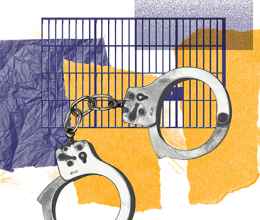Like an unconstitutional Florida law, LD 2204 would prohibit people from buying property based solely on their national origin, along with provisions that would increase incarceration rates and expand police surveillance without probable cause.
Unconstitutional Discrimination Based on National Origin:
Section 3 of LD 2204 echoes repeated efforts over the past century to weaponize false claims of “national security” against Asian and other immigrants. The section would prohibit people from purchasing property in Maine if they are not permanent residents and are citizens of China, Cuba, Iran, North Korea, or Russia.
This provision targets people based on something they cannot control – where they were born – and is not directed at specific conduct. Discrimination based on national origin, race, ethnicity, color, or alienage violates the Equal Protection Clause of the Fourteenth Amendment. Several similar laws have been reversed in many states over the past century. Earlier this month, a federal appeals court blocked a similar racist property ownership law in Florida in a challenge brought by the ACLU. In addition to being unconstitutional and harmful to those directly targeted, it would also be counterproductive for Maine by making it more difficult to recruit students, workers, investors, and more.
Invasion of Privacy:
Section 5 of LD 2204 would require utility companies to create lists of people in Maine who have more than 400 total ampere installations in a residential property and share that list with the Maine State Police. This would violate the Fourth and Fourteenth Amendments by giving lists of people for the state to investigate with no reasonable suspicion of illegal behavior. Surveilling or searching Maine’s people must be rooted in a reasonable suspicion of specific illegal activity, not a blanket assumption that certain legal activities are advancing illegal ones.
Doubling Down on the Failed Policies of the War on Drugs
Section 1 of LD 2204 would create new crimes for “racketeering” and would reinstitute asset forfeiture in alleged crimes related to drugs, including simple drug possession. Policies like this are what made the United States the world’s largest jailer, both in absolute numbers and by the percentage of people we imprison.
Maine is no outlier in this trend, and creating new criminal penalties will only worsen this crisis. Section 1 likely stems from recent reports of several arrests relating to illegal cannabis growing operations. Expanding government powers and increasing incarceration rates will only harm Maine and its people, with already marginalized communities bearing the brunt of the harm. As they have already demonstrated, Maine’s law enforcement agencies can address illegal operations under existing laws and regulations; they do not need this wholly unnecessary and regressive legislation.
Bill Movement:
This bill originated in 2024 during the Second Regular Session of the 131st Legislature.
- Bill printed: 2/5/2024
- Referred to Joint Standing Committee Criminal Justice and Public Safety: 2/6/2024
- Public hearing in committee: 2/21/2024
- Work session and vote in committee: 3/6/2024 (DIVIDED REPORT)
- Ought to pass: 7
- Ought not to pass: 6
- House vote: N/A
- Senate vote: N/A
- Action by governor: N/A







